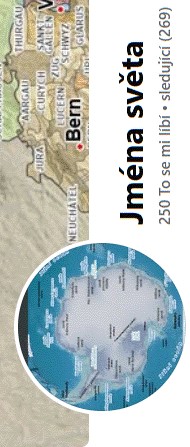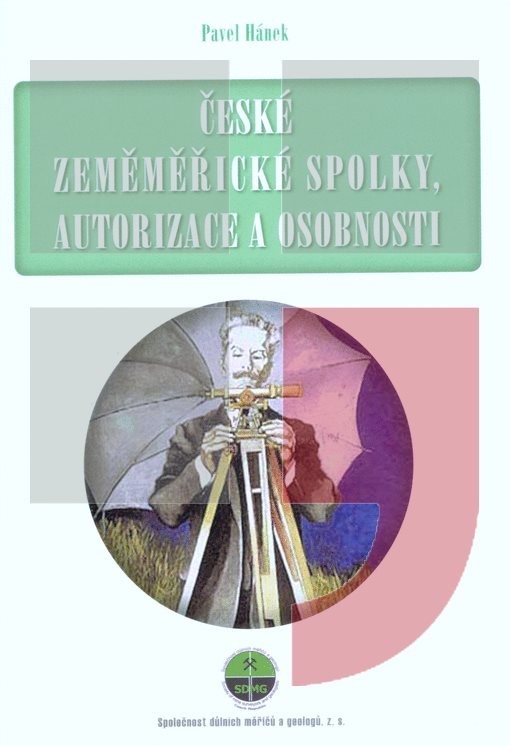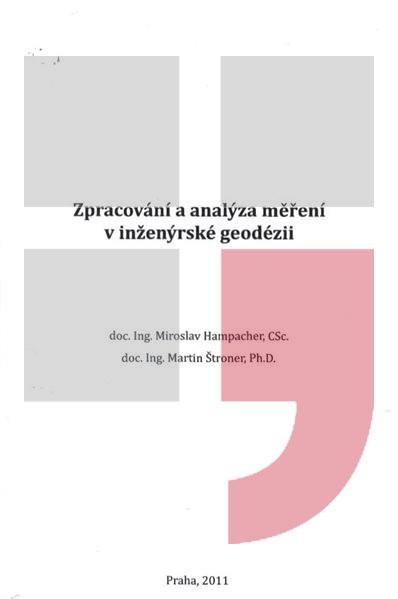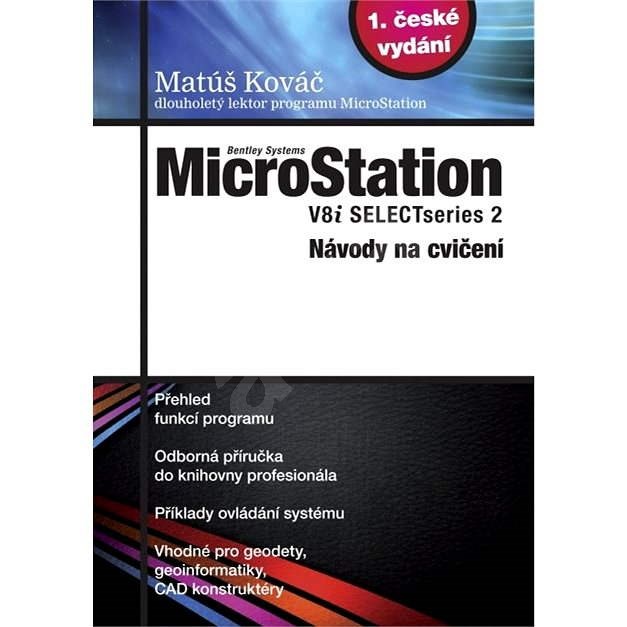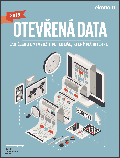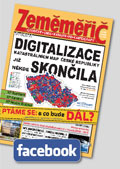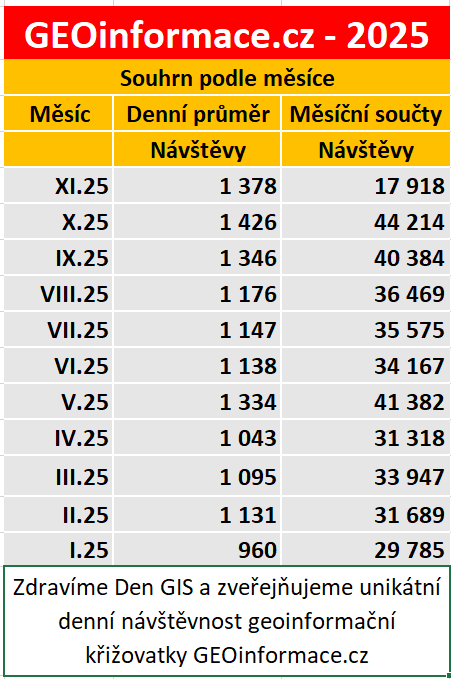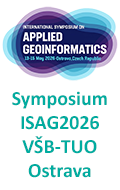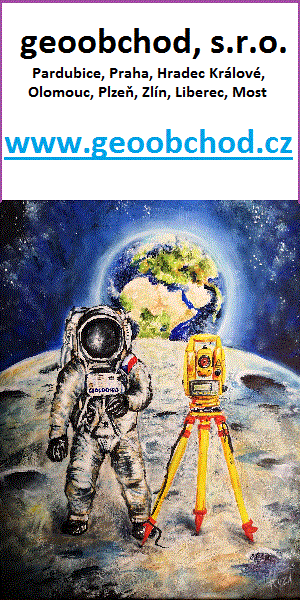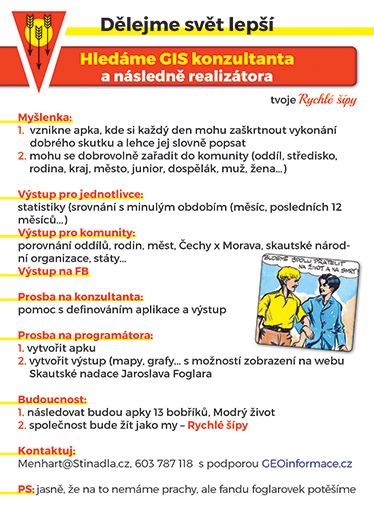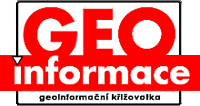zprávy
zdroje zpráv:Nová stahovací služba WFS 3D ZABAGED®
21.1.2021 11:05 ČÚZK - Geoportál Nová stahovací služba WFS 3D ZABAGED®Byla zveřejněna nová stahovací služba WFS 3D ZABAGED® poskytující data ZABAGED® po úpravě na trojrozměrné (3D) objekty. Za zdroj výšky byla použita atributová informace tam, kde byla dostupná, v ostatních případech je výška získána na základě výškového modelu DMR 5G.
Nová stahovací služba WFS 3D ZABAGED®
21.1.2021 11:05 ČÚZK - Geoportál Nová stahovací služba WFS 3D ZABAGED®Byla zveřejněna nová stahovací služba WFS 3D ZABAGED® poskytující data ZABAGED® po úpravě na trojrozměrné (3D) objekty. Za zdroj výšky byla použita atributová informace tam, kde byla dostupná, v ostatních případech je výška získána na základě výškového modelu DMR 5G.
Nová stahovací služba WFS 3D ZABAGED®
21.1.2021 11:05 ČÚZK - Geoportál Nová stahovací služba WFS 3D ZABAGED®Byla zveřejněna nová stahovací služba WFS 3D ZABAGED® poskytující data ZABAGED® po úpravě na trojrozměrné (3D) objekty. Za zdroj výšky byla použita atributová informace tam, kde byla dostupná, v ostatních případech je výška získána na základě výškového modelu DMR 5G.
Nová stahovací služba WFS 3D ZABAGED®
21.1.2021 11:05 ČÚZK - Geoportál Nová stahovací služba WFS 3D ZABAGED®Byla zveřejněna nová stahovací služba WFS 3D ZABAGED® poskytující data ZABAGED® po úpravě na trojrozměrné (3D) objekty. Za zdroj výšky byla použita atributová informace tam, kde byla dostupná, v ostatních případech je výška získána na základě výškového modelu DMR 5G.
Nová stahovací služba WFS 3D ZABAGED®
21.1.2021 11:05 ČÚZK - Geoportál Nová stahovací služba WFS 3D ZABAGED®Byla zveřejněna nová stahovací služba WFS 3D ZABAGED® poskytující data ZABAGED® po úpravě na trojrozměrné (3D) objekty. Za zdroj výšky byla použita atributová informace tam, kde byla dostupná, v ostatních případech je výška získána na základě výškového modelu DMR 5G.
Nová stahovací služba WFS 3D ZABAGED®
21.1.2021 11:05 ČÚZK - Geoportál Nová stahovací služba WFS 3D ZABAGED®Byla zveřejněna nová stahovací služba WFS 3D ZABAGED® poskytující data ZABAGED® po úpravě na trojrozměrné (3D) objekty. Za zdroj výšky byla použita atributová informace tam, kde byla dostupná, v ostatních případech je výška získána na základě výškového modelu DMR 5G.
Nová stahovací služba WFS 3D ZABAGED®
21.1.2021 11:05 ČÚZK - Geoportál Nová stahovací služba WFS 3D ZABAGED®Byla zveřejněna nová stahovací služba WFS 3D ZABAGED® poskytující data ZABAGED® po úpravě na trojrozměrné (3D) objekty. Za zdroj výšky byla použita atributová informace tam, kde byla dostupná, v ostatních případech je výška získána na základě výškového modelu DMR 5G.
Plánované vyřazení aplikací ArcGIS Collector, Explorer a Tracker
21.1.2021 10:00 ARCDATANová mobilní aplikace ArcGIS Field Maps vznikla proto, aby zjednodušila práci v terénu. Pro uživatele je pohodlnější, když má všechny funkce k dispozici v jediné aplikaci, a stejně tak je to výhodnější i pro vývojáře. V ArcGIS Field Maps nyní nalezneme veškerou funkcionalitu dnes samostatných aplikací ArcGIS Collector, ArcGIS Explorer a ArcGIS Tracker. Postupně budou přibývat i funkce aplikací ArcGIS Workforce a ArcGIS Navigator a samozřejmě také i zcela nové nástroje.
Místo aplikací Collector, Explorer a Tracker je doporučeno používat ArcGIS Field Apps. Aplikace Collector, Explorer ani Tracker již nebudou získávat nové nástroje a funkce, pokud však bude třeba, vyjde bezpečnostní aktualizace, aby aplikace mohly dál v systému bezpečně fungovat. V prosinci 2021 skončí pro ArcGIS Collector, ArcGIS Explorer a ArcGIS Tracker (pro iOS i Android) veškerá podpora a pravděpodobně budou vyřazeny z obchodů s aplikacemi.
Přechod na aplikaci ArcGIS Field Maps
Přechod na aplikaci ArcGIS Field Maps by měl být velmi plynulý.
- Není potřeba měnit uživatelské licence. Aplikace používá stejné typy licencí jako původní aplikace a uživateli nabízí nástroje odpovídající jeho licencím.
- Není se třeba učit novým postupům. Aplikace totiž pracuje se stejnými webovými mapami a její uživatelské prostředí je velmi podobné předchozím aplikacím. Ve většině případů nepoznáte při práci rozdíl mezi předchozí aplikací a Field Maps.
- Pokud uživatelé pracují s offline mapami, budou si je muset do ArcGIS Field Maps stáhnout znovu.
- Pokud využíváte spouštění aplikace s parametrem pomocí App Link, bude potřeba tyto příkazy upravit.
- ArcGIS Field Maps zahrnuje i novou webovou aplikací pro lepší správu map určených pro práci v terénu.
Podrobnější informace naleznete v brožuře Esri ArcGIS Field Maps Migration Guide, která vám pomůže ArcGIS Field Maps začít používat.
Zdroje informací
Představení ArcGIS Field Maps (blog v češtině)
ArcGIS Field Maps (workshop v češtině, záznam z YouTube)
ArcGIS Field Maps Migration Guide (průvodce migrací, anglické PDF)
ArcGIS Field Maps Offline Guide (průvodce pro práci s offline mapami, anglické PDF)
Lake heatwaves to increase due to climate change
21.1.2021 9:00 ESA Observing the Earth
Lake heatwaves – periods of extreme warm surface water temperature in lakes – may become hotter and longer by the end of the 21st century, according to a study published in Nature, increasing the link between climate change and extreme events.
Lake heatwaves to increase due to climate change
21.1.2021 9:00 ESA Observing the Earth
Lake heatwaves – periods of extreme warm surface water temperature in lakes – may become hotter and longer by the end of the 21st century, according to a new study published in Nature, increasing the link between climate change and extreme events.
Nový Vyjadřovací portál společnosti ČEPS
21.1.2021 1:00 CAD Studio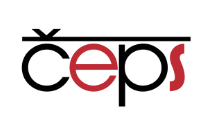 Společnost ČEPS informuje ve své tiskové zprávě o spuštění webové GIS aplikace z dílny CAD Studia - Vyjadřovací portál.
Provozovatel přenosové soustavy spustil začátkem roku 2021 na svých webových stránkách aplikaci Vyjadřovací portál. Jejím ...
Společnost ČEPS informuje ve své tiskové zprávě o spuštění webové GIS aplikace z dílny CAD Studia - Vyjadřovací portál.
Provozovatel přenosové soustavy spustil začátkem roku 2021 na svých webových stránkách aplikaci Vyjadřovací portál. Jejím ...Fulcrum Extends Data Insights to the Esri™ Location Intelligence Platform
20.1.2021 17:31 GISCafe.com Webcasts-Webinars New integration allows mobile teams to leverage Fulcrum location data in Esri maps--without codeST. PETERSBURG, Fla., Jan. 20, 2021 — …
Rozpočet úřadu za rok 2021
20.1.2021 13:08 ČÚZK - předpisy a opatření Katastrální úřad pro Jihomoravský krajvystavuje rozpočet úřadu za rok
2021
Rozpočet úřadu za rok 2021
20.1.2021 13:08 ČÚZK /Urady/Katastralni-urady/Katastralni-urady/Katastralni-urad-pro-Jihomoravsky-kraj/Rozpocet/Rozpocet-uradu-za-rok-2021Rozpočet úřadu za rok 2021
20.1.2021 12:27 ČÚZK - předpisy a opatření Katastrální úřad pro Středočeský krajvystavuje rozpočet úřadu za rok 2021
2021
Rozpočet úřadu za rok 2021
20.1.2021 12:27 ČÚZK /Urady/Katastralni-urady/Katastralni-urady/Katastralni-urad-pro-Stredocesky-kraj/Rozpocet/Rozpocet-uradu-za-rok-2020-(1)Nabídka Škoda Fabia Kombi
20.1.2021 12:14 ČÚZK /Urady/Katastralni-urady/Katastralni-urady/Katastralni-urad-pro-Kralovehradecky-kraj/Nabidky-majetku/Nabidka-Skoda-Fabia-Kombi-(2)Nabídka Škoda Fabia Kombi
20.1.2021 12:14 ČÚZK - předpisy a opatřeníKatastrální úřad pro Královéhradecký kraj nabízí nepotřebný majetek k odkupu. Jedná se o
Nabídka Škoda Fabia Kombi
Nabídka Škoda Fabia Kombi
20.1.2021 12:14 ČÚZK - předpisy a opatřeníKatastrální úřad pro Královéhradecký kraj nabízí nepotřebný majetek k odkupu. Jedná se o
Nabídka Škoda Fabia Kombi
Nabídka Škoda Fabia Kombi
20.1.2021 12:14 ČÚZK /Urady/Katastralni-urady/Katastralni-urady/Katastralni-urad-pro-Kralovehradecky-kraj/Nabidky-majetku/Nabidka-Skoda-Fabia-Kombi-(1)Nabídka Škoda Fabia Kombi
20.1.2021 12:14 ČÚZK - předpisy a opatřeníKatastrální úřad pro Královéhradecký kraj nabízí nepotřebný majetek k odkupu. Jedná se o
Nabídka Škoda Fabia Kombi
Nabídka Škoda Fabia Kombi
20.1.2021 12:14 ČÚZK /Urady/Katastralni-urady/Katastralni-urady/Katastralni-urad-pro-Kralovehradecky-kraj/Nabidky-majetku/Nabidka-Skoda-Fabia-Kombi20210120
20.1.2021 9:46 ČÚZK - předpisy a opatření Český úřad zeměměřický a katastrální zveřejnil novou aktualitu: Zveřejněny statistické údaje za 4. čtvrtletí roku 2020 o vybraných transakcích s nemovitostmi evidovanými v KN.20210120
20.1.2021 9:46 ČÚZK - aktuality v resortu Zveřejněny statistické údaje za 4. čtvrtletí roku 2020 o vybraných transakcích s nemovitostmi evidovanými v KN.20210120
20.1.2021 9:46 ČÚZK - předpisy a opatření Český úřad zeměměřický a katastrální zveřejnil novou aktualitu: Zveřejněny statistické údaje za 4. čtvrtletí roku 2020 o vybraných transakcích s nemovitostmi evidovanými v KN.20210120 - Statistické údaje
20.1.2021 9:46 ČÚZK - předpisy a opatření Český úřad zeměměřický a katastrální zveřejnil novou aktualitu: Zveřejněny statistické údaje za 4. čtvrtletí roku 2020 o vybraných transakcích s nemovitostmi evidovanými v KN.20210120 - Statistické údaje
20.1.2021 9:46 ČÚZK - aktuality v resortu Zveřejněny statistické údaje za 4. čtvrtletí roku 2020 o vybraných transakcích s nemovitostmi evidovanými v KN.20210120 - Statistické údaje
20.1.2021 9:46 ČÚZK - předpisy a opatření Český úřad zeměměřický a katastrální zveřejnil novou aktualitu: Zveřejněny statistické údaje za 4. čtvrtletí roku 2020 o vybraných transakcích s nemovitostmi evidovanými v KN.20210120
20.1.2021 9:46 ČÚZK - aktuality v resortu Zveřejněny statistické údaje za 4. čtvrtletí roku 2020 o vybraných transakcích s nemovitostmi evidovanými v KN.20210120 - Statistické údaje
20.1.2021 9:46 ČÚZK - aktuality v resortu Zveřejněny statistické údaje za 4. čtvrtletí roku 2020 o vybraných transakcích s nemovitostmi evidovanými v KN.Změna úředních hodin
20.1.2021 8:43 ČÚZK - předpisy a opatření Katastrální úřad pro Jihomoravský kraj - Katastrální pracoviště Hustopeče zveřejnil novou aktualitu: důvodu vyhlášených krizových opatření se od 18.01.2021 omezují úřední hodiny katastrálních pracovišť Katastrálního úřadu pro Jihomoravský kraj na pondělí od 8:00 do 13:00a středu od 12:00 do 17:00
Elektronická rezervace
20.1.2021 8:34 ČÚZK - předpisy a opatření Katastrální úřad pro Jihomoravský kraj - Katastrální pracoviště Znojmo zveřejnil novou aktualitu: Možnost elektronické rezervacePodrobnosti zde
Elektronická rezervace
20.1.2021 8:34 ČÚZK - předpisy a opatření Katastrální úřad pro Jihomoravský kraj - Katastrální pracoviště Znojmo zveřejnil novou aktualitu: Možnost elektronické rezervaceVážení klienti, od 25.01.2021 je možno využít služeb podatelny a poskytování
údajů z katastru nemovitostí i na podkladě elektronické rezervace.
Podrobnosti zde
Elektronická rezervace
20.1.2021 8:34 ČÚZK - předpisy a opatření Katastrální úřad pro Jihomoravský kraj - Katastrální pracoviště Znojmo zveřejnil novou aktualitu: Možnost elektronické rezervacePodrobnosti zde
Elektronická rezervace
20.1.2021 8:34 ČÚZK - předpisy a opatření Katastrální úřad pro Jihomoravský kraj - Katastrální pracoviště Znojmo zveřejnil novou aktualitu: Možnost elektronické rezervacePodrobnosti zde.
Elektronická rezervace
20.1.2021 8:34 ČÚZK - předpisy a opatření Katastrální úřad pro Jihomoravský kraj - Katastrální pracoviště Znojmo zveřejnil novou aktualitu: Možnost elektronické rezervacePodrobnosti zde
Elektronická rezervace
20.1.2021 8:34 ČÚZK - předpisy a opatření Katastrální úřad pro Jihomoravský kraj - Katastrální pracoviště Znojmo zveřejnil novou aktualitu: Možnost elektronické rezervaceVážení klienti, od 25.01.2021 je možno využít služeb podatelny a poskytování
údajů z katastru nemovitostí i na podkladě elektronické rezervace.
Podrobnosti zde
Elektronická rezervace
20.1.2021 8:34 ČÚZK /Urady/Katastralni-urady/Katastralni-urady/Katastralni-urad-pro-Jihomoravsky-kraj/Katastralni-pracoviste/KP-Znojmo/O-uradu/Aktuality/Elektronicka-rezervaceElektronická rezervace
20.1.2021 8:34 ČÚZK - předpisy a opatření Katastrální úřad pro Jihomoravský kraj - Katastrální pracoviště Znojmo zveřejnil novou aktualitu: Možnost elektronické rezervaceVážení klienti, od 25.01.2021 je možno využít služeb podatelny a poskytování
údajů z katastru nemovitostí i na podkladě elektronické rezervace.
Podrobnosti zde
Elektronická rezervace
20.1.2021 8:34 ČÚZK - předpisy a opatření Katastrální úřad pro Jihomoravský kraj - Katastrální pracoviště Znojmo zveřejnil novou aktualitu: Možnost elektronické rezervaceVážení klienti, od 25.01.2021 je možno využít služeb podatelny a poskytování
údajů z katastru nemovitostí i na podkladě elektronické rezervace.
Podrobnosti zde
Elektronická rezervace
20.1.2021 8:34 ČÚZK - předpisy a opatření Katastrální úřad pro Jihomoravský kraj - Katastrální pracoviště Znojmo zveřejnil novou aktualitu: Možnost elektronické rezervaceVážení klienti, od 25.01.2021 je možno využít služeb podatelny a poskytování
údajů z katastru nemovitostí i na podkladě elektronické rezervace.
Podrobnosti zde
Elektronická rezervace
20.1.2021 8:34 ČÚZK - předpisy a opatření Katastrální úřad pro Jihomoravský kraj - Katastrální pracoviště Znojmo zveřejnil novou aktualitu: Možnost elektronické rezervaceVážení klienti, od 25.01.2021 je možno využít služeb podatelny a poskytování
údajů z katastru nemovitostí i na podkladě elektronické rezervace.
Podrobnosti zde
... The post appeared first o
20.1.2021 0:00 Siemens Industry Software...
The post appeared first on Siemens Blogs.
Arbol Closes Its Series A Raise, Adds Mubadala Capital-Ventures To Its Investment Group
19.1.2021 21:46 GISCafe.com Webcasts-Webinars NEW YORK, Jan. 19, 2021 — (PRNewswire) — Arbol Inc. announced today that it has closed its Series A fundraising round with …Interview with Anthony Calamito, VP of Products, Enview
19.1.2021 21:02 GISCafe.com Webcasts-WebinarsVelodyne Lidar and Trunk.Tech Announce Strategic Partnership in Autonomous Trucking
19.1.2021 17:00 GISCafe.com Webcasts-Webinars Companies Team to Accelerate Development of Driverless Trucks for China’s Logistics MarketSAN JOSE, Calif. — (BUSINESS WIRE) — January …
Maxar Technologies Appoints The University of Texas at El Paso President, Former Congresswoman and Former Air Force Secretary Dr. Heather Wilson to Its Board of Directors
19.1.2021 17:00 GISCafe.com Webcasts-Webinars WESTMINSTER, Colo. — (BUSINESS WIRE) — January 19, 2021 —Maxar Technologies (NYSE:MAXR) (TSX:MAXR), a trusted partner and …
DENSO and Aeva Collaborate to Bring FMCW 4D LiDAR to Mass Vehicle Market
19.1.2021 17:00 GISCafe.com Webcasts-Webinars Collaboration leverages DENSO’s experience in commercializing advanced technologies with Aeva’s unique 4D LiDAR on chip to enable automated …SkyGrid and SparkCognition Deploy First AI-Powered Cybersecurity System on Drones
19.1.2021 16:59 GISCafe.com Webcasts-Webinars High-performance, edge deployed cybersecurity platform will provide zero-day protection against advanced attacksAUSTIN, Texas, Jan. 19, 2021 — …
Satellogic and SpaceX Announce Multiple Launch Agreement
19.1.2021 16:59 GISCafe.com Webcasts-Webinars First mission, scheduled for mid-2021, will further expand Satellogic’s industry-leading in-orbit capacityMONTEVIDEO, Uruguay — (BUSINESS …
Dragontail Systems Deploys Autonomous Drones To Assist Food Deliveries
19.1.2021 16:59 GISCafe.com Webcasts-Webinars Dragontail Systems' AI-Based Technology Ensures Hot & Fresh Food From Order to DeliveryNEW YORK, Jan. 19, 2021 — (PRNewswire) — …
USGS Selects Woolpert for Topographic Lidar Task Order in Hawaii
19.1.2021 16:59 GISCafe.com Webcasts-Webinars Woolpert's third GPSC 3 task order in Hawaii is part of a systematic statewide lidar data collection.DENVER, Jan. 19, 2021 — (PRNewswire) …
Red Cat Holdings Files Application for Listing on NASDAQ Capital Market
19.1.2021 16:59 GISCafe.com Webcasts-Webinars ORLANDO, Fla., Jan. 19, 2021 — (PRNewswire) — Red Cat Holdings, Inc. (OTCQB: RCAT) ("Red Cat" or the "Company"), a leading brand …Online data z dopravy a jejich využití
19.1.2021 16:08 CEDA Maps a.s. Praha, 19. ledna 2021 - Věděli jste, že díky analýze dat v reálném čase je možné sledovat aktuální dění v dopravě, obsazenost parkovacích míst nebo dobíjecích stanic pro elektromobily? Podívejte se na naše video o efektivním využití online dat v dopravě a dozvíte se víc.Výběrové řízení - Inspektor/ka – právník Zeměměřického a katastrálního inspektorátu v Praze
19.1.2021 12:52 ČÚZK - předpisy a opatření Zeměměřický a katastrální inspektorát v Praze zveřejnil novou aktualitu: Oznámení o vyhlášení výběrového řízení na obsazení služebního místa Inspektor/ka – právník Zeměměřického a katastrálního inspektorátu v Praze (obor služby 55.)Inspektor – právník Zeměměřického a katastrálního inspektorátu v Praze (obor služby 55.)
19.1.2021 12:51 ČÚZK /Urady/Zememericke-a-katastralni-inspektoraty/Zememericke-a-katastralni-inspektoraty/Zememericky-a-katastralni-inspektorat-v-Praze/Uredni-deska/Oznameni-a-jina-uredni-sdeleni/Volna-mista/DMS/Inspektor-–-pravnik-Zememerickeho-a-katastraln-(1)Inspektor – právník Zeměměřického a katastrálního inspektorátu v Praze (obor služby 55.)
19.1.2021 12:51 ČÚZK - volná místa Zeměměřický a katastrální inspektorát v Praze vypisuje výběrové řízení na místo Inspektor – právník Zeměměřického a katastrálního inspektorátu v Praze (obor služby 55.)Inspektor – právník Zeměměřického a katastrálního inspektorátu v Praze (obor služby 55.)
19.1.2021 12:51 ČÚZK - předpisy a opatření Zeměměřický a katastrální inspektorát v Prazevypisuje výběrové řízení na místo
Inspektor – právník Zeměměřického a katastrálního inspektorátu v Praze (obor služby 55.)
Vrchní referent/Rada – Oddělení právních vztahů k nemovitostem
19.1.2021 11:50 ČÚZK - volná místa Katastrální úřad pro Karlovarský kraj Katastrální pracoviště Cheb vypisuje výběrové řízení na místo Vrchní referent/Rada – Oddělení právních vztahů k nemovitostemVrchní referent/Rada – Oddělení právních vztahů k nemovitostem
19.1.2021 11:50 ČÚZK /Urady/Katastralni-urady/Katastralni-urady/Katastralni-urad-pro-Karlovarsky-kraj/Uredni-deska/Oznameni-a-jina-uredni-sdeleni/Volna-mista/DMS/Vrchni-referent-Rada-–-Oddeleni-pravnich-vztahu-kVrchní referent/Rada – Oddělení právních vztahů k nemovitostem
19.1.2021 11:50 ČÚZK - předpisy a opatření Katastrální úřad pro Karlovarský kraj Katastrální pracoviště Chebvypisuje výběrové řízení na místo
Vrchní referent/Rada – Oddělení právních vztahů k nemovitostem
20210119_Vedoucí oddělení právních vztahů k nemovitostem – odborný rada
19.1.2021 11:35 ČÚZK - předpisy a opatření Katastrální úřad pro Středočeský kraj - Katastrální pracoviště Benešov Vyhlášení výběrového řízení: Vedoucí oddělení právních vztahů k nemovitostem – odborný rada V části "Úřední deska", v sekci "Oznámení a jiná úřední sdělení" bylo vystaveno "Oznámení o vyhlášení výběrového řízení na obsazení služebního místa Vedoucí oddělení právních vztahů k nemovitostem – odborný rada"20210119_Vedoucí oddělení právních vztahů k nemovitostem – odborný rada
19.1.2021 11:35 ČÚZK /Urady/Katastralni-urady/Katastralni-urady/Katastralni-urad-pro-Stredocesky-kraj/Katastralni-pracoviste/KP-Benesov/O-uradu/Aktuality/20210113_odborny-rada,-reditel-Katastralniho-p-(1)Vedoucí oddělení právních vztahů k nemovitostem – odborný rada
19.1.2021 11:33 ČÚZK - volná místa Katastrální úřad pro Středočeský kraj - Katastrální pracoviště Benešov vypisuje výběrové řízení na místo Vedoucí oddělení právních vztahů k nemovitostem – odborný radaVedoucí oddělení právních vztahů k nemovitostem – odborný rada
19.1.2021 11:33 ČÚZK - předpisy a opatření Katastrální úřad pro Středočeský kraj - Katastrální pracoviště Benešovvypisuje výběrové řízení na místo Vedoucí oddělení právních vztahů k nemovitostem – odborný rada
Vedoucí oddělení právních vztahů k nemovitostem – odborný rada
Brand new subject – Impact of European Union Policies on Geosciences
19.1.2021 11:23 Katedra geoinformatiky UP OlomoucWe are offering you to sing into our brand new subject presenting practical linkage between EU & GeoSciences – Impact of European Union Policies on Geosciences (PRF/EUGEO) It is open for all geo-oriented students from Department of Geoinformatics, Department of geography and Department of Development & Environmental Studies Subject is supported by Erasmus+ Jean Monnet […]
The post Brand new subject – Impact of European Union Policies on Geosciences appeared first on Katedra geoinformatiky.
Brand new subject – Impact of European Union Policies on Geosciences
19.1.2021 11:23 Katedra geoinformatiky UP OlomoucWe are offering you to sign into our brand new subject presenting practical linkage between EU & GeoSciences – Impact of European Union Policies on Geosciences (PRF/EUGEO) It is open for all geo-oriented students from Department of Geoinformatics, Department of geography and Department of Development & Environmental Studies Subject is supported by Erasmus+ Jean Monnet […]
The post Brand new subject – Impact of European Union Policies on Geosciences appeared first on Katedra geoinformatiky.
20210119 - opatření proti vytěžování VDP
19.1.2021 10:07 ČÚZK - předpisy a opatření Vzhledem k opakovanému vytěžování VDP, které je v rozporu s podmínkami užívání aplikace, pro získání přístupu do Nahlížení do KN jsme byli nuceni upravit rozhraní aplikací. Ve VDP je nyní možné zobrazit údaje o vlastnictví až po potvrzení akce v dialogovém okně.20210119 - opatření proti vytěžování VDP
19.1.2021 10:07 ČÚZK /Uvod/Produkty-a-sluzby/RUIAN/RUIAN-novinky/2021/20210119-opatreni-proti-vytezovani-VDPZhodnocení investice do geodetických dat – Výstaviště České Budějovice a.s.
19.1.2021 9:18 GIS FórumTomTom Joins Autoware Foundation
19.1.2021 9:00 GISCafe.com Webcasts-Webinars AMSTERDAM, Jan. 20, 2021 (GLOBE NEWSWIRE) -- TomTom (TOM2), the leading independent location technology specialist, today announced that it has …Jak ušetřit 20% na AutoCADu (LT) a Revitu LT
19.1.2021 1:00 CAD Studio Ušetřete 20 % na Vašem novém CAD/BIM software - platí jen do 29.1. Váš nový CAD či BIM software Autodesk si nyní můžete pořídit levněji. V rámci krátké slevové promo akce můžete zakoupit o 20 % zvýhodněné 3leté subscription licence oblíbených CAD a ...American Robotics Becomes First Company Approved by the FAA To Operate Automated Drones Without Human Operators On-Site
18.1.2021 17:03 GISCafe.com Webcasts-Webinars A seminal milestone in the drone industry, American Robotics now meets the safety requirements needed to make drones scalable for widespread …OGC Members propose update to work of Features API Standards Working Group; public comment sought
18.1.2021 16:46 GISCafe.com Webcasts-Webinars Recharter of Features API SWG adds new work items for the group to continue the evolution of this important building block for location.Contact: …
Pracovník/pracovnice vztahů k veřejnosti a telefonista/ka
18.1.2021 16:24 ČÚZK - volná místa Zeměměřický úřad vypisuje výběrové řízení na místo Pracovník/pracovnice vztahů k veřejnosti a telefonista/kaPracovník/pracovnice vztahů k veřejnosti a telefonista/ka
18.1.2021 16:24 ČÚZK - předpisy a opatření Zeměměřický úřadvypisuje výběrové řízení na místo
Pracovník/pracovnice vztahů k veřejnosti a telefonista/ka
Pracovník/pracovnice vztahů k veřejnosti a telefonista/ka
18.1.2021 16:24 ČÚZK /Urady/Zememericky-urad/Volna-mista/Pracovnik-pracovnice-vztahu-k-verejnosti-a-telefonPracovník/pracovnice vztahů k veřejnosti a telefonista/ka
18.1.2021 16:24 Zeměměřický úřad Zeměměřický úřadvypisuje výběrové řízení na místo
Pracovník/pracovnice vztahů k veřejnosti a telefonista/ka
Domovník/domovnice
18.1.2021 16:21 ČÚZK - volná místa Zeměměřický úřad vypisuje výběrové řízení na místo Domovník/domovniceDomovník/domovnice
18.1.2021 16:21 ČÚZK - předpisy a opatření Zeměměřický úřadvypisuje výběrové řízení na místo
Domovník/domovnice
Domovník/domovnice
18.1.2021 16:21 Zeměměřický úřad Zeměměřický úřadvypisuje výběrové řízení na místo
Domovník/domovnice
20210118-VŘ Ředitel/ředitelka KÚ pro hlavní město Prahu
18.1.2021 16:20 ČÚZK - aktuality v resortu Oznámení o vyhlášení výběrového řízení na obsazení služebního místa ředitele/ředitelky Katastrálního úřadu pro hl. m. Prahu20210118-VŘ Ředitel/ředitelka KÚ pro hlavní město Prahu
18.1.2021 16:20 ČÚZK /Aktuality-resort/2021/20210118-VR-Reditel-reditelka-KU-pro-hlavni-mesto20210118-VŘ Ředitel/ředitelka KÚ pro hlavní město Prahu
18.1.2021 16:20 ČÚZK - předpisy a opatření Český úřad zeměměřický a katastrální zveřejnil novou aktualitu: Oznámení o vyhlášení výběrového řízení na obsazení služebního místa ředitele/ředitelky Katastrálního úřadu pro hl. m. PrahuArcGIS Field Maps
18.1.2021 15:54 blog ARCDATA ArcGIS Field Maps je nová mobilní aplikace. Ukážeme vám, k čemu ji můžete používat a jaké je její místo mezi ostatními mobilními aplikacemi Esri.Informace o výsledcích kontrol dle § 26 zákona č. 255/2012 Sb. za rok 2020
18.1.2021 15:53 ČÚZK - předpisy a opatření Zeměměřický a katastrální inspektorát v Pardubicíchvydává informace o výsledcích kontrol dle § 26 zákona č. 255/2012 Sb. za rok 2020
2020
20210118-VŘ ředitel/ředitelka
18.1.2021 15:50 ČÚZK - předpisy a opatření Český úřad zeměměřický a katastrální zveřejnil novou aktualitu: Oznámení o vyhlášení výběrového řízení na obsazení služebního místa ředitele/ředitelky Katastrálního úřadu pro hl. m. Prahu.20210118-VŘ ředitel/ředitelka
18.1.2021 15:50 ČÚZK - aktuality v resortu Oznámení o vyhlášení výběrového řízení na obsazení služebního místa ředitele/ředitelky Katastrálního úřadu pro hl. m. Prahu.20210118-VŘ ředitel/ředitelka
18.1.2021 15:50 ČÚZK /Aktuality-resort/2021/20210118-VR-reditel-reditelkaOdborný referent/vrchní referent v oddělení dokumentace KN na Katastrálním pracovišti Brno - město
18.1.2021 14:05 ČÚZK - volná místa Katastrální úřad pro Jihomoravský kraj Katastrální pracoviště Brno-město vypisuje výběrové řízení na místo Odborný referent/vrchní referent v oddělení dokumentace KN na Katastrálním pracovišti Brno - městoOdborný referent/vrchní referent v oddělení dokumentace KN na Katastrálním pracovišti Brno - město
18.1.2021 14:05 ČÚZK /Urady/Katastralni-urady/Katastralni-urady/Katastralni-urad-pro-Jihomoravsky-kraj/Uredni-deska/Oznameni-a-jina-uredni-sdeleni/Volna-mista/DMS/Odborny-referent-vrchni-referent-v-oddeleni-dokumeOdborný referent/vrchní referent v oddělení dokumentace KN na Katastrálním pracovišti Brno - město
18.1.2021 14:05 ČÚZK - předpisy a opatření Katastrální úřad pro Jihomoravský kraj Katastrální pracoviště Brno-městovypisuje výběrové řízení na místo
Odborný referent/vrchní referent v oddělení dokumentace KN na Katastrálním pracovišti Brno - město
Space synergies key for EUSPA
18.1.2021 13:59 European GNSS Agency
One of the main motivations behind the creation of the European Union Agency for the Space Programme (EUSPA) is to generate synergies between the different components of the EU Space Programme, particularly navigation, Earth observation and secure communications, according to European GNSS Agency (GSA) Executive Director Rodrigo da Costa.
In his keynote address at a session on ‘Space data and downstream applications’ at the 13th European Space Conference on 12 January, da Costa noted that EUSPA is an opportunity for the EU Space Programme and for Europe as a whole, as it will enable the creation of synergies between navigation (EGNOS and Galileo), earth observation (Copernicus) and telecommunications (GOVSATCOM).
EUSPA will maximise its contribution to the EU Space Programme being the organisation that puts European Union space assets at the service of its citizens, he said. This was something that was also underlined by other participants in this session.
Da Costa noted for example the potential for synergies between navigation and Earth observation in transport and agriculture. “By bringing navigation and earth observation together we can bring transport one step ahead, and do the same in agriculture, thereby making a big contribution to the Green Deal,” he said.
Aligned with EU priorities
The EU Space Programme is instrumental for the EU´s key policy areas – be it the Green Deal, Digitisation or contributing to a greener and stronger economy in Europe in general. “We are very closely aligned with the priorities of the EU. For instance, Galileo and EGNOS already make an important contribution to a greener environmental footprint,” da Costa said, citing the example of precision agriculture, where an increased number of tractors equipped with EGNOS and Galileo are helping to improve environmental performance in the sector.
Read this: Users benefitting from Galileo accuracy in latest Javad receivers
Da Costa concluded: “EUSPA will not just be a bigger GSA. It is a new agency that will benefit from the GSA’s experience and will work closely with its partners in the European Commission, the European Space Agency and in industry.”
Pandemic response
Due to the COVID pandemic, this year’s Space Conference took place online and the pandemic was very much in focus. Asked about the GSA’s response, da Costa said that the Agency had taken action to ensure the safe and secure continuity of operations for Galileo and EGNOS and to support SMEs and start-ups, making sure that the flow of funding to support innovation continued.
Moreover, concrete initiatives like the Galileo Green Lane app, implemented jointly with the European Commission, eased the management of traffic congestion at EU borders during the crisis and helped to mitigate its impacts and keep critical goods flowing. “We will have to come back from the crisis with an economy that is more resilient, more robust and greener. The space programme will have a very significant role to play in this,” da Costa said, adding that space technologies are important for the economy, as they add value in practically all sectors.
And this: GSA launches call for Venture Capitalists
Da Costa also spoke amongst others with Thomas Dermine, Belgian State Secretary for Economic Recovery and Strategic Investments, in a session on “Enhancement of European Space Asset Cyber Resilience’’. Underlining the operational experience gained by the GSA for EGNOS and Galileo, da Costa stressed that security of the space assets is essential for the development of the EU Space Programme and that, as an EU agency in the forefront of the implementation of the EU Space Programme, the GSA was already concretely following the EU rules in this regard. “Cybersecurity is complex and requires monitoring 24/7. This is what we are doing with the Galileo Security Monitoring Centre,” he said.
EGNSS for energy
At a session on ‘Space for Energy, and Clean Energy for Space,’ GSA Head of Market Development Fiammetta Diani spoke about the role of Galileo in the energy sector, touching on areas such as the synchronisation of energy networks and the importance of accuracy and robustness in smart grids that help distributing more and more energy from renewable sources. Diani also stressed the importance of synergies between EGNSS and Copernicus in the energy sector, to improve the site selection, construction, operation and maintenance of wind farms, for example.
“EUSPA will further foster the use of space technologies for the energy sector, for example by offering innovation opportunities for start-ups, implementing new business models for this fast changing domain, and creating Galileo-Copernicus solutions to increase renewable energy production and distribution, as an important contribution to the European Green Deal,” she said.
Media note: This feature can be republished without charge provided the European GNSS Agency (GSA) is acknowledged as the source at the top or the bottom of the story. You must request permission before you use any of the photographs on the site. If you republish, we would be grateful if you could link back to the GSA website (http://www.gsa.europa.eu).
Space synergies key for EUSPA
18.1.2021 13:59 European GNSS Agency
One of the main motivations behind the creation of the European Union Agency for the Space Programme (EUSPA) is to generate synergies between the different components of the EU Space Programme, particularly navigation, Earth observation and secure communications, according to European GNSS Agency (GSA) Executive Director Rodrigo da Costa.
In his keynote address at a session on ‘Space data and downstream applications’ at the 13th European Space Conference on 12 January, da Costa noted that EUSPA is an opportunity for the EU Space Programme and for Europe as a whole, as it will enable the creation of synergies between navigation (EGNOS and Galileo), earth observation (Copernicus) and telecommunications (GOVSATCOM).
EUSPA will maximise its contribution to the EU Space Programme being the organisation that puts European Union space assets at the service of its citizens, he said. This was something that was also underlined by other participants in this session.
Da Costa noted for example the potential for synergies between navigation and Earth observation in transport and agriculture. “By bringing navigation and earth observation together we can bring transport one step ahead, and do the same in agriculture, thereby making a big contribution to the Green Deal,” he said.
Aligned with EU priorities
The EU Space Programme is instrumental for the EU´s key policy areas – be it the Green Deal, Digitisation or contributing to a greener and stronger economy in Europe in general. “We are very closely aligned with the priorities of the EU. For instance, Galileo and EGNOS already make an important contribution to a greener environmental footprint,” da Costa said, citing the example of precision agriculture, where an increased number of tractors equipped with EGNOS and Galileo are helping to improve environmental performance in the sector.
Read this: Users benefitting from Galileo accuracy in latest Javad receivers
Da Costa concluded: “EUSPA will not just be a bigger GSA. It is a new agency that will benefit from the GSA’s experience and will work closely with its partners in the European Commission, the European Space Agency and in industry.”
Pandemic response
Due to the COVID pandemic, this year’s Space Conference took place online and the pandemic was very much in focus. Asked about the GSA’s response, da Costa said that the Agency had taken action to ensure the safe and secure continuity of operations for Galileo and EGNOS and to support SMEs and start-ups, making sure that the flow of funding to support innovation continued.
Moreover, concrete initiatives like the Galileo Green Lane app, implemented jointly with the European Commission, eased the management of traffic congestion at EU borders during the crisis and helped to mitigate its impacts and keep critical goods flowing. “We will have to come back from the crisis with an economy that is more resilient, more robust and greener. The space programme will have a very significant role to play in this,” da Costa said, adding that space technologies are important for the economy, as they add value in practically all sectors.
And this: GSA launches call for Venture Capitalists
Da Costa also spoke amongst others with Thomas Dermine, Belgian State Secretary for Economic Recovery and Strategic Investments, in a session on “Enhancement of European Space Asset Cyber Resilience’’. Underlining the operational experience gained by the GSA for EGNOS and Galileo, da Costa stressed that security of the space assets is essential for the development of the EU Space Programme and that, as an EU agency in the forefront of the implementation of the EU Space Programme, the GSA was already concretely following the EU rules in this regard. “Cybersecurity is complex and requires monitoring 24/7. This is what we are doing with the Galileo Security Monitoring Centre,” he said.
EGNSS for energy
At a session on ‘Space for Energy, and Clean Energy for Space,’ GSA Head of Market Development Fiammetta Diani spoke about the role of Galileo in the energy sector, touching on areas such as the synchronisation of energy networks and the importance of accuracy and robustness in smart grids that help distributing more and more energy from renewable sources. Diani also stressed the importance of synergies between EGNSS and Copernicus in the energy sector, to improve the site selection, construction, operation and maintenance of wind farms, for example.
“EUSPA will further foster the use of space technologies for the energy sector, for example by offering innovation opportunities for start-ups, implementing new business models for this fast changing domain, and creating Galileo-Copernicus solutions to increase renewable energy production and distribution, as an important contribution to the European Green Deal,” she said.
Media note: This feature can be republished without charge provided the European GNSS Agency (GSA) is acknowledged as the source at the top or the bottom of the story. You must request permission before you use any of the photographs on the site. If you republish, we would be grateful if you could link back to the GSA website (http://www.gsa.europa.eu).
Space synergies key for EUSPA
18.1.2021 13:59 European GNSS Agency
One of the main motivations behind the creation of the European Union Agency for the Space Programme (EUSPA) is to generate synergies between the different components of the EU Space Programme, particularly navigation, Earth observation and secure communications, according to European GNSS Agency (GSA) Executive Director Rodrigo da Costa.
In his keynote address at a session on ‘Space data and downstream applications’ at the 13th European Space Conference on 12 January, da Costa noted that EUSPA is an opportunity for the EU Space Programme and for Europe as a whole, as it will enable the creation of synergies between navigation (EGNOS and Galileo), earth observation (Copernicus) and telecommunications (GOVSATCOM).
EUSPA will maximise its contribution to the EU Space Programme being the organisation that puts European Union space assets at the service of its citizens, he said. This was something that was also underlined by other participants in this session.
Da Costa noted for example the potential for synergies between navigation and Earth observation in transport and agriculture. “By bringing navigation and earth observation together we can bring transport one step ahead, and do the same in agriculture, thereby making a big contribution to the Green Deal,” he said.
Aligned with EU priorities
The EU Space Programme is instrumental for the EU´s key policy areas – be it the Green Deal, Digitisation or contributing to a greener and stronger economy in Europe in general. “We are very closely aligned with the priorities of the EU. For instance, Galileo and EGNOS already make an important contribution to a greener environmental footprint,” da Costa said, citing the example of precision agriculture, where an increased number of tractors equipped with EGNOS and Galileo are helping to improve environmental performance in the sector.
Read this: Users benefitting from Galileo accuracy in latest Javad receivers
Da Costa concluded: “EUSPA will not just be a bigger GSA. It is a new agency that will benefit from the GSA’s experience and will work closely with its partners in the European Commission, the European Space Agency and in industry.”
Pandemic response
Due to the COVID pandemic, this year’s Space Conference took place online and the pandemic was very much in focus. Asked about the GSA’s response, da Costa said that the Agency had taken action to ensure the safe and secure continuity of operations for Galileo and EGNOS and to support SMEs and start-ups, making sure that the flow of funding to support innovation continued.
Moreover, concrete initiatives like the Galileo Green Lane app, implemented jointly with the European Commission, eased the management of traffic congestion at EU borders during the crisis and helped to mitigate its impacts and keep critical goods flowing. “We will have to come back from the crisis with an economy that is more resilient, more robust and greener. The space programme will have a very significant role to play in this,” da Costa said, adding that space technologies are important for the economy, as they add value in practically all sectors.
And this: GSA launches call for Venture Capitalists
Da Costa also spoke amongst others with Thomas Dermine, Belgian State Secretary for Economic Recovery and Strategic Investments, in a session on “Enhancement of European Space Asset Cyber Resilience’’. Underlining the operational experience gained by the GSA for EGNOS and Galileo, da Costa stressed that security of the space assets is essential for the development of the EU Space Programme and that, as an EU agency in the forefront of the implementation of the EU Space Programme, the GSA was already concretely following the EU rules in this regard. “Cybersecurity is complex and requires monitoring 24/7. This is what we are doing with the Galileo Security Monitoring Centre,” he said.
EGNSS for energy
At a session on ‘Space for Energy, and Clean Energy for Space,’ GSA Head of Market Development Fiammetta Diani spoke about the role of Galileo in the energy sector, touching on areas such as the synchronisation of energy networks and the importance of accuracy and robustness in smart grids that help distributing more and more energy from renewable sources. Diani also stressed the importance of synergies between EGNSS and Copernicus in the energy sector, to improve the site selection, construction, operation and maintenance of wind farms, for example.
“EUSPA will further foster the use of space technologies for the energy sector, for example by offering innovation opportunities for start-ups, implementing new business models for this fast changing domain, and creating Galileo-Copernicus solutions to increase renewable energy production and distribution, as an important contribution to the European Green Deal,” she said.
Media note: This feature can be republished without charge provided the European GNSS Agency (GSA) is acknowledged as the source at the top or the bottom of the story. You must request permission before you use any of the photographs on the site. If you republish, we would be grateful if you could link back to the GSA website (http://www.gsa.europa.eu).
Výběrové řízení
18.1.2021 13:58 ČÚZK - předpisy a opatření Katastrální úřad pro Plzeňský kraj - Katastrální pracoviště Plzeň-město zveřejnil novou aktualitu: Ředitelka Katastrálního úřadu pro Plzeňský kraj vyhlašuje výběrové řízení na služební místo odborný referent/vrchní referent – návrh zápisu v katastru NZK1006, oddělení aktualizace KN, Katastrální úřad pro Plzeňský kraj, Katastrální pracoviště Plzeň-město.Výběrové řízení na pozici odborný referent/vrchní referent – návrh zápisu v katastru NZK1006
18.1.2021 13:49 ČÚZK - předpisy a opatření Katastrální úřad pro Plzeňský kraj Katastrální pracoviště Plzeň-městovypisuje výběrové řízení na místo
Výběrové řízení na pozici odborný referent/vrchní referent – návrh zápisu v katastru NZK1006
Výběrové řízení na pozici odborný referent/vrchní referent – návrh zápisu v katastru NZK1006
18.1.2021 13:49 ČÚZK - volná místa Katastrální úřad pro Plzeňský kraj Katastrální pracoviště Plzeň-město vypisuje výběrové řízení na místo Výběrové řízení na pozici odborný referent/vrchní referent – návrh zápisu v katastru NZK1006Výběrové řízení na pozici odborný referent/vrchní referent – návrh zápisu v katastru NZK1006
18.1.2021 13:49 ČÚZK /Urady/Katastralni-urady/Katastralni-urady/Katastralni-urad-pro-Plzensky-kraj/Uredni-deska/Oznameni-a-jina-uredni-sdeleni/Volna-mista/DMS/Vyberove-rizeni-na-pozici-odborny-referent-vrchniZveřejnění obsahu informací poskytnutých na žádost dle zákona č. 106/1999 Sb. za rok 2021
18.1.2021 13:44 ČÚZK - předpisy a opatření Katastrální úřad pro Vysočinuzveřejňuje obsah informace poskytnutých na žádost dle zákona č. 106/1999 Sb. za rok
2021
Zveřejnění obsahu informací poskytnutých na žádost dle zákona č. 106/1999 Sb. za rok 2021
18.1.2021 13:44 ČÚZK /Urady/Katastralni-urady/Katastralni-urady/Katastralni-urad-pro-Vysocinu/Casto-hledane-informace/Poskytovani-informaci-106-1999-Sb/Zverejneni-obsahu-informaci-poskytnutych-na-za-(1)/Zverejneni-obsahu-informaci-poskytnutych-na-za-(3)Rada/odborný rada v oddělení právním na Katastrálním pracovišti Brno - venkov
18.1.2021 13:44 ČÚZK - předpisy a opatření Katastrální úřad pro Jihomoravský kraj Katastrální pracoviště Brno-venkovvypisuje výběrové řízení na místo
Rada/odborný rada v oddělení právním na Katastrálním pracovišti Brno - venkov
Rada/odborný rada v oddělení právním na Katastrálním pracovišti Brno - venkov
18.1.2021 13:44 ČÚZK /Urady/Katastralni-urady/Katastralni-urady/Katastralni-urad-pro-Jihomoravsky-kraj/Uredni-deska/Oznameni-a-jina-uredni-sdeleni/Volna-mista/DMS/Rada-odborny-rada-v-oddeleni-pravnim-na-Katast-(1)Rada/odborný rada v oddělení právním na Katastrálním pracovišti Brno - venkov
18.1.2021 13:44 ČÚZK - volná místa Katastrální úřad pro Jihomoravský kraj Katastrální pracoviště Brno-venkov vypisuje výběrové řízení na místo Rada/odborný rada v oddělení právním na Katastrálním pracovišti Brno - venkovVýroční zpráva dle zákona č. 106/1999 Sb. za rok 2020
18.1.2021 13:42 ČÚZK - předpisy a opatření Katastrální úřad pro Vysočinuvydává výroční zprávu úřadu za rok
2020
Minulý týden se konala členská schůze Aliance
18.1.2021 13:42 UAVAMinulý týden ve čtvrtek 14.1.2021 se konala členská schůze Aliance online formou, která je pro členy nahrána na youtube kanál Aliance. Hlavní diskuze se věnovala plánovaným akcím v roce 2021, kde mezi hlavní akce bude patřit již 6. konference Aliance, dále se můžeme těšit na Dronfest 2021 v Plzni, český stánek na Commercial UAV Expo […]
The post Minulý týden se konala členská schůze Aliance appeared first on UAV Aliance pro bezpilotní letecký průmysl.
Výroční zpráva dle zákona č. 106/1999 Sb. za rok 2020
18.1.2021 13:42 ČÚZK /Urady/Katastralni-urady/Katastralni-urady/Katastralni-urad-pro-Vysocinu/Vyrocni-zpravy/Vyrocni-zprava-dle-zakona-c-106-1999-Sb-za-rok-(2)Rozpočet úřadu za rok 2021
18.1.2021 13:39 ČÚZK /Urady/Katastralni-urady/Katastralni-urady/Katastralni-urad-pro-Vysocinu/Rozpocet/Rozpocet-uradu-za-rok-2021Rozpočet úřadu za rok 2021
18.1.2021 13:39 ČÚZK - předpisy a opatření Katastrální úřad pro Vysočinuvystavuje rozpočet úřadu za rok
2021
Vrchní referent/rada v oddělení právních vztahů k nemovitostem na Katastrálním pracovišti Hodonín
18.1.2021 13:37 ČÚZK - předpisy a opatření Katastrální úřad pro Jihomoravský kraj Katastrální pracoviště Hodonínvypisuje výběrové řízení na místo
Vrchní referent/rada v oddělení právních vztahů k nemovitostem na Katastrálním pracovišti Hodonín
Vrchní referent/rada v oddělení právních vztahů k nemovitostem na Katastrálním pracovišti Hodonín
18.1.2021 13:37 ČÚZK - volná místa Katastrální úřad pro Jihomoravský kraj Katastrální pracoviště Hodonín vypisuje výběrové řízení na místo Vrchní referent/rada v oddělení právních vztahů k nemovitostem na Katastrálním pracovišti HodonínVrchní referent/rada v oddělení právních vztahů k nemovitostem na Katastrálním pracovišti Hodonín
18.1.2021 13:37 ČÚZK /Urady/Katastralni-urady/Katastralni-urady/Katastralni-urad-pro-Jihomoravsky-kraj/Uredni-deska/Oznameni-a-jina-uredni-sdeleni/Volna-mista/DMS/Vrchni-referent-rada-v-oddeleni-pravnich-vztahu-k
Nové číslo GaKO
18.1.2021 13:15
ÚGKK SR
Nové číslo časopisu Geodetického a Kartografického Obzoru 01/2021



